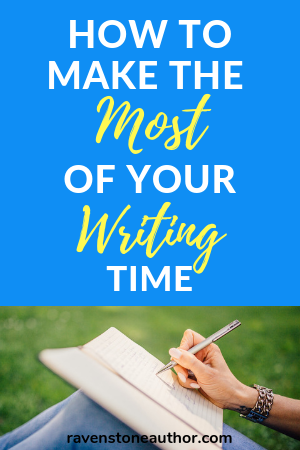
Are you trying to juggle a job, a personal life, and your writing time?
Tell me if this sounds like you – five days a week you get up and you go into work. After eight hours, or nine, or ten, you leave work, and go home and make dinner. You spend some time with your spouse, or your kids, or your friends. And all along there’s this dream inside of you – this dream of being a writer. So somewhere in all of that, you carve out half an hour or an hour of writing, to let your dream live.
But often, when you finally sit down to write, nothing comes. The muse is frigging silent. Doesn’t she know that you only have half an hour today? Come on! This is your dream, and you spent the first fifteen minutes staring at a blank page. How are you ever going to get your dream off the ground?
I hear you, my lovely. I’ve been there.
Here are my tips to help you make the most of out the writing time that you do have.
1. Figure out the time that you’re most creative.
Depending on your day, you’ve probably tried writing at different times. Maybe an hour before work, or during your lunch, or in the evening. Out of all of those different times, think back about when your writing seemed to just flow; when it was just pouring out of you. Was that in the morning? Or the evening?
For example, I can write in the morning. It’s possible. But the majority of the time my best writing sessions have been in the afternoons and the evenings. I think that’s because I’m a night person. I function at higher levels as the day progresses.
What about you? When do you function at your peak? Is there any way that you can carve out some time to writing during your peak time?
2. Have an idea of what you will write before your writing session.
First off – I know my fellow pantsers are already resisting this idea. But give me the benefit of the doubt for a few minutes.
Whether you’re a pantser – that’s someone who doesn’t outline – or a plotter – someone who outlines – this tip will work for you.
Rather than staring down the blank page and watching your time bleed away, try this –
Pantser – You know how everything’s flowing wonderfully as you wrap up a writing session? While your creativity is still flowing, go ahead and come up with your idea for the next scene or chapter. This can be very brief – just a few words or a sentence – that describes what will come next. It can be something as simple as this –
Jenna finds out that Ryan is cheating on her
Mark pulls Tony aside and tells him that he will be promoted tomorrow
Write down that brief idea and email it to yourself. A few hours before your writing session, read that email again. This lets your subconscious chew on that idea, before you even start writing.
Plotter – Take that outline of yours and bring up the next scene/chapter that you’ll write. Include your notes, your description – whatever you have planned – and email that to yourself.
A few hours before your writing session, read that email again. This lets your subconscious chew on that idea, before you even start writing.
3. Set the stage.
Okay, now that you’ve had a few hours to warm up, it’s time to set the stage. Get in your writing spot. Sometimes this will be your ideal place – maybe in your quiet home office with a fresh cup of coffee at hand. Or, you could be stuck on a noisy bus, or sitting in the breakroom at work.
How are you going to connect with your characters, easily and every time?
My suggestion is to pick a soundtrack. This can be for each character, or for each book. Put together a series of songs that will last about an hour, and play that music every time you sit down to write.
Why should you do this?
It acts as a trigger for your mind. Do this on a regular basis, and your mind will recognize that it’s time to get back into the world of your characters. It makes the transition from not-writing to writing so much easier.
Then, start to write.
4. Write every day.
I know this isn’t always feasible. But it’s a lot easier to get back into your story if you’re writing every day. Even half an hour a day can help.
Takeaways
With some careful planning and preparation, you can make the most of the limited amount of time you have to write. Try some of these suggestions, and you might find you’re consistently able to write.
